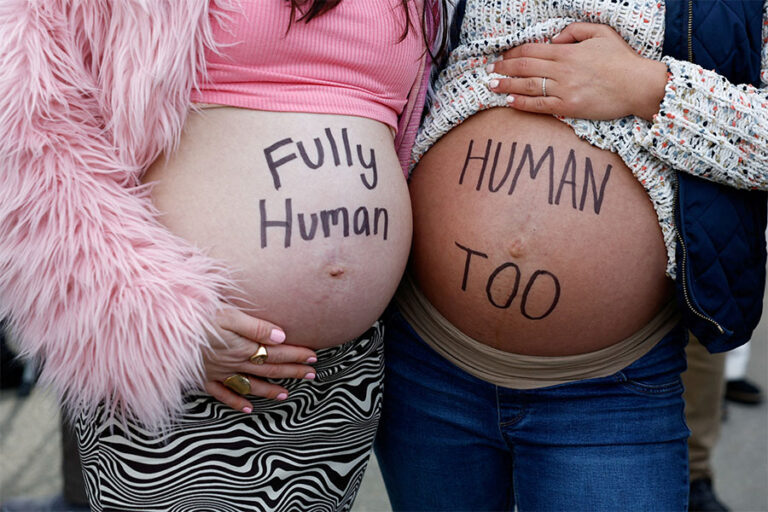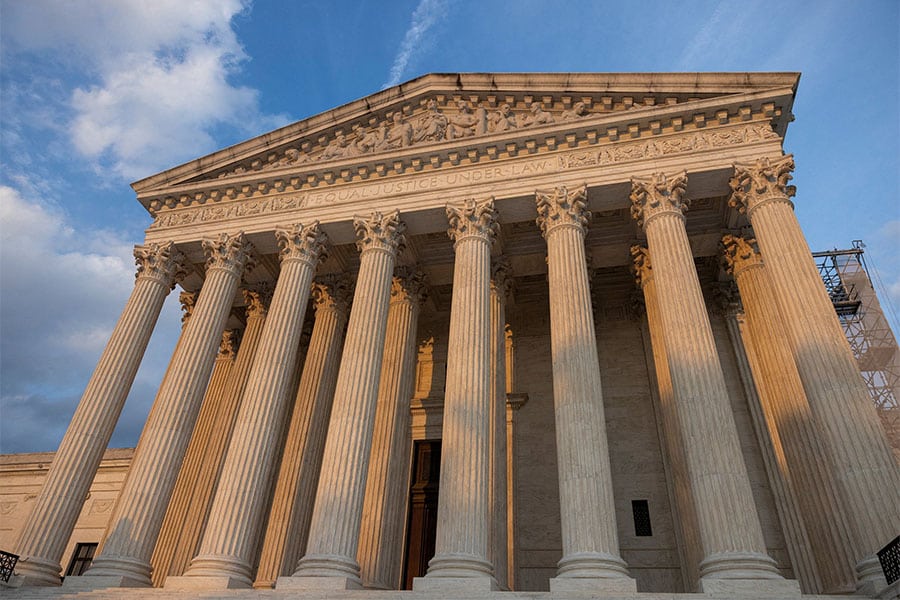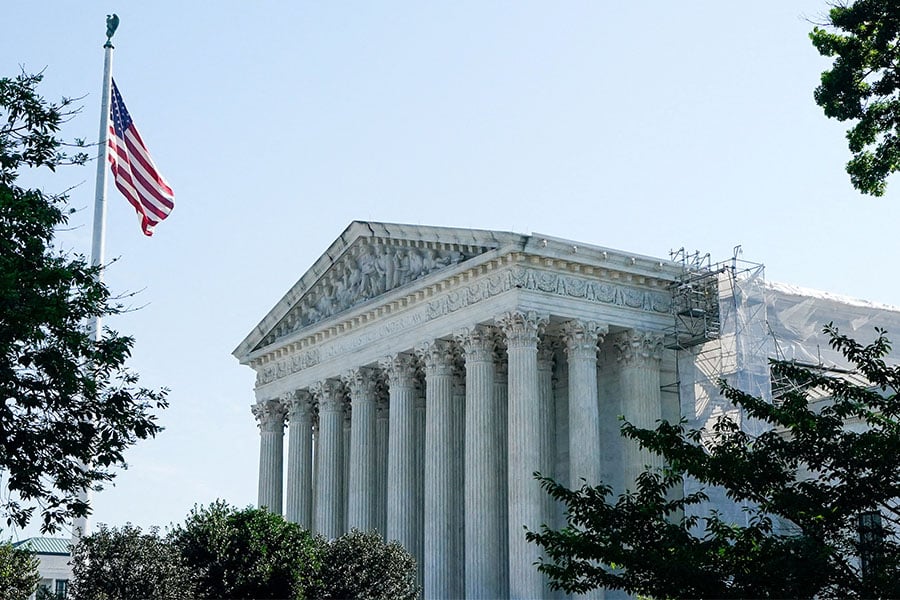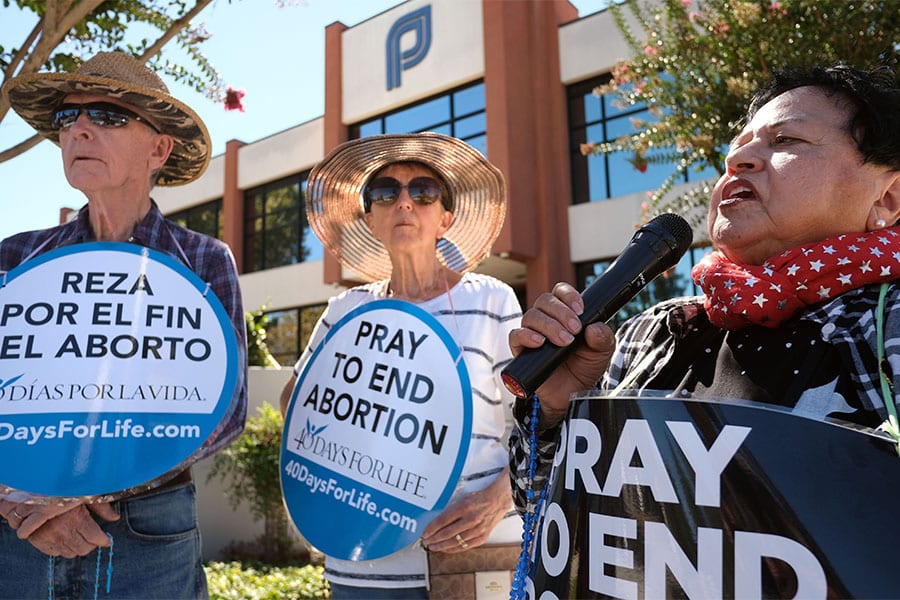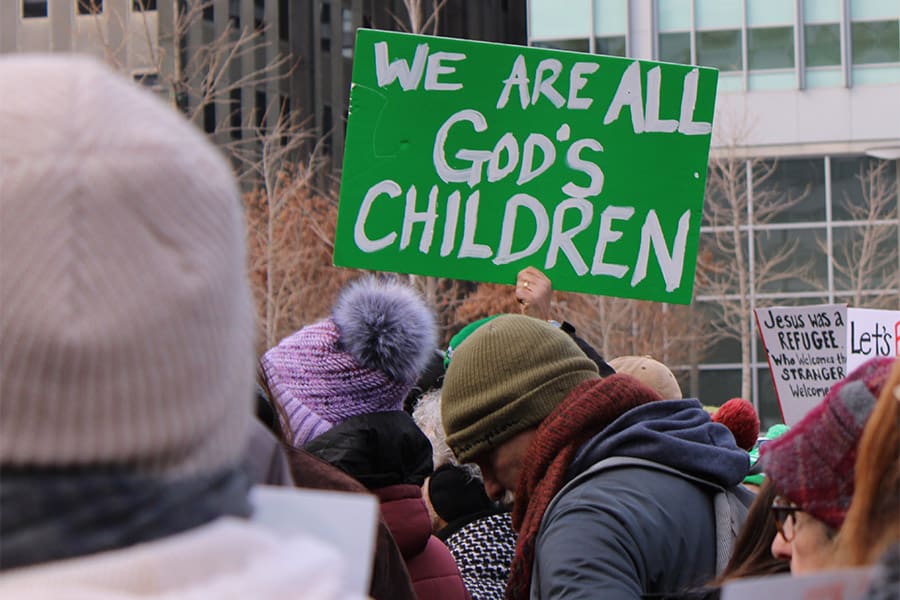Centuries ago, a young pregnant woman set out on a journey. She was probably nervous and scared, because her pregnancy was unexpected, scandalous and mysterious. The young woman arrived at her cousin’s home, where she hoped she would find welcome and understanding. And she was welcomed not only by her cousin but also by another who “leapt in her (cousin’s) womb” with joy.
The first person to rejoice in the presence of Jesus was an unborn child.
Ironically, as abortion has become commonplace in American life, our insight into the reality of life within the womb has grown. Parents can watch their children move, sleep and suck their thumbs in the womb, in real time, thanks to four-dimensional ultrasound technology.
The survival of an infant outside the womb is possible at increasingly earlier stages of pregnancy — as early as 21 weeks in some cases — with new treatments to ensure the health of these tiny children being developed all the time. In recent years, surgery on children still in utero to correct spina bifida, hydrocephalus, breathing obstructions and other problems has become more common, sophisticated and safe.
Our culture’s sensitivity to the effects of a mother’s lifestyle on her preborn child has grown as well. Expectant mothers are discouraged from smoking, drinking alcohol or taking drugs, and parents are encouraged to interact with their unborn child through talking and music.
It’s worth thinking about long and hard: What kind of society goes to such great lengths to care for unborn children but at the very same time declares that they have no right to life?
The Catholic Church teaches today what it has for two thousand years: Human life begins at conception and any deliberate participation in the killing of that defenseless life is a mortal sin.
Abortion is the willful and intentional destruction of human life in the womb. Sometimes miscarriages are referred to as “spontaneous abortions,” but they are different from what we usually call abortion. A miscarriage occurs without human intervention of any kind. When a preborn child’s life is deliberately taken by another human being, that is an “induced abortion.” When people say “abortion,” this is what they mean. In fact, statistical reporting on abortion excludes miscarriages.
Abortions are procured in a number of ways. A chemical abortion results from taking medication prescribed to terminate a human pregnancy. The drug RU-486 is one of the most common forms of chemical abortion and is administered in early pregnancy. Abortion by medication accounts for more than half of all abortions in the United States.
Surgical abortion, meanwhile, involves crushing or dismembering the child in the womb. The practice called “partial-birth abortion,” which involves suctioning out the brain of a child pulled partially out of the womb, was banned in a 2003 federal law, but other means of late-term abortion, such as saline abortions, are still legal.
Regardless of what stage of pregnancy at which an abortion is performed, there are physical consequences. Decades of medical research indicate that induced abortions may be associated with higher incidence of infertility and problems in future pregnancies.
There are emotional consequences, too. The death of a child is one of the most devastating experiences any parent can endure. Whether the loss occurs through miscarriage, stillbirth or after a child is born, the grief borne by survivors is deep and painful. Abortion has the same effect, with the added dimension of guilt for one’s role in the death of a child. Sooner or later, mothers, fathers, grandparents and friends are confronted with the loss of a child they will never know.
In any of these situations, we all need the sure knowledge of God’s love and mercy. When we or those we love are confronting these feelings of grief and guilt, we should know that Christ is ready to welcome us through his church, through programs such as Project Rachel, and through his presence in the sacraments, especially reconciliation and, once we have been reconciled, the Eucharist.
Most of us know the basic facts about unborn life and abortion. In our hearts, we know it’s a tragic, terrible thing. We don’t like to see photographs of the remains of aborted children. We don’t even really like to say the word “abortion” or bring it up in polite conversation. We know all this, but sometimes fear, shame, pride and hopelessness discourage us from doing what we know is right.
How can we dig deeper and find the courage to live out our convictions? Jesus has the answer. Many things seem impossible for us to do alone, but there is no doubt that with God “all things are possible.” When we see seemingly impossible situations through God’s eyes, we find the courage to choose life.
Co-author Jessica Keating is the program director for the Notre Dame Office of Life and Human Dignity in the McGrath Institute for Church Life at the University of Notre Dame in Indiana. Co-Author Amy Welborn is an author and freelance writer living in Birmingham, Ala.
Read More Respect Life
Copyright © 2024 OSV News

